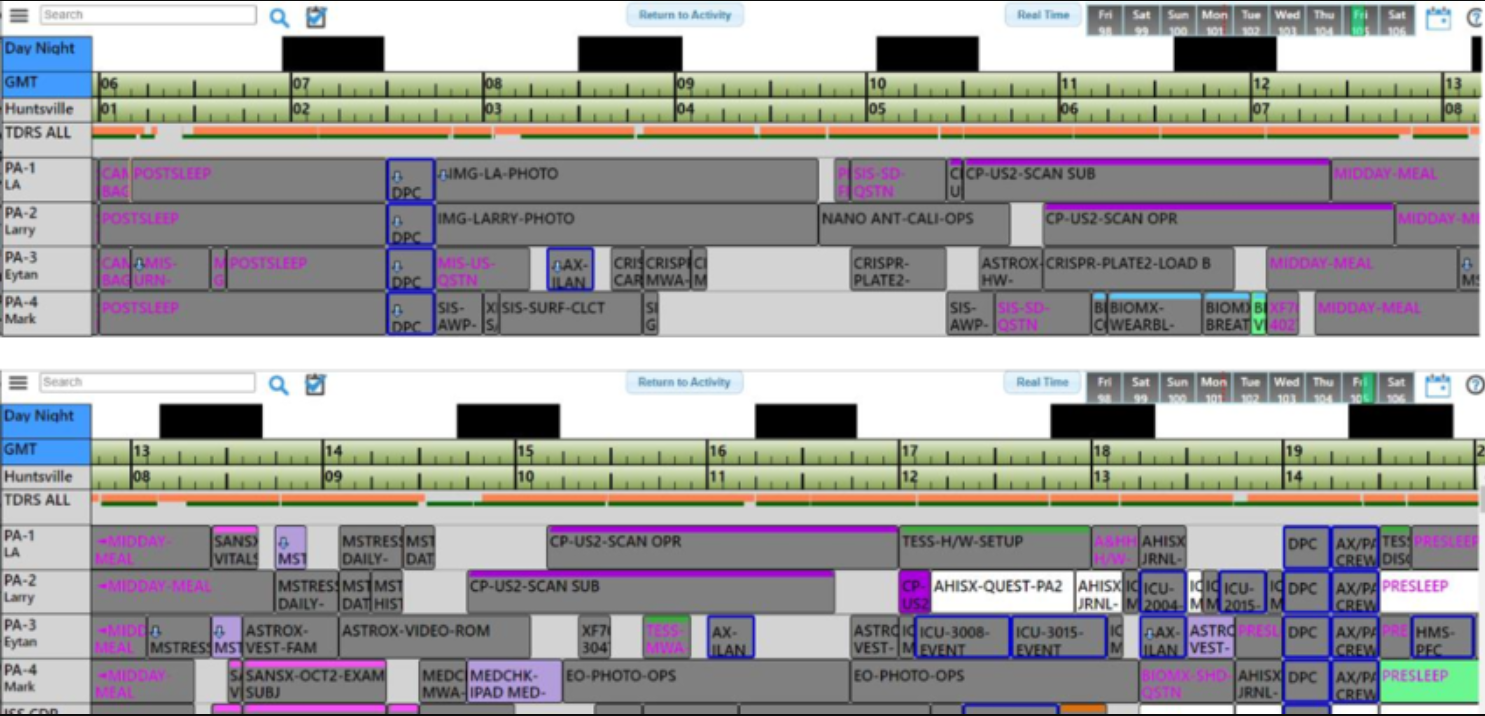Each day starts with a "postsleep" period that allows time for breakfast, getting dressed, personal care, etc. (as shown in the OPTIMIS screenshot below). Postsleep is followed by the DPC (Daily Planning Conference) where the ground touches base with the crew before starting the workday. That's a blue-banded activity, which means it must be done at the scheduled time. If a crew member isn't out of their sleeping quarters by then, I'd assume the rests of the crew would wake them up.
 (image source)
(image source)
There's no defined procedure if a crew member oversleeps, but the lost time will eventually be absorbed/replanned in the day's schedule by flight controllers in MCC-H and POIC. Doing so was one aspect of my job when I was a POIC Operations Controller. Here's an excerpt from one of my console logs dealing with shuffling schedules of several science experiments (crew member names redacted, since no one wants to be called out for running behind):
FE-2 is wrapping up PCG13, and moving on to the stow portion of the activity.
MELFI 1 Dewar 4
Open: 12:34:51
Close: 12:35:11
Flight asked if there's anything we can give up on the timeline, since FE-3 is running behind on her MCA install for JSC. He specifically asked about Lighting Effects. We informed him it had already gotten kicked off of yesterday's schedule, but we'd look into it. I asked PCG13 if they could give up at least 40 minutes, since FE-2 did an extra plate today, and they concurred. TCO pointed out it's got a 3 hour constraint prior to presleep, so LTE would have to go at the beginning of PCG13 tomorrow, starting at 1400, with PCG13 starting at 1440. I relayed all to POD, and Flight decided to keep it as hip pocket, so we may not end up giving up LTE after all - we'll see!
Update: FE-3 is back on track now that she's working on Sextant Navigation, so it looks like we'll get the LTE in today.
However, PCG13 confirmed they no longer need the 2.006 Rehydrate procedure on tomorrow since FE-2 did it today, and the 2.007 PCG13 Card Fill can be shortened to 2 hours in duration. PD agreed sliding everything to the right would work for them, so if it ends up planned differently we'll need to notify PD again.
The backroom planners would take the information from those logs and re-plan the next day accordingly.
Acronyms used above:
- FE-#: Flight Engineer
- MELFI: Minus Eighty Degree Laboratory Freezer
ISS
- MCA: Major Constituent Analyzer
- JSC: Johnson Space Center
(Houston)
- PCG13: Protein Crystal Growth 13 (science experiment)
- LTE: Lighting Effects (science experiment)
- TCO: Timeline Change Officer
- POD: Payload Operations Director
- PD: Payload Developer (team of scientists with an experiment onboard the ISS)
